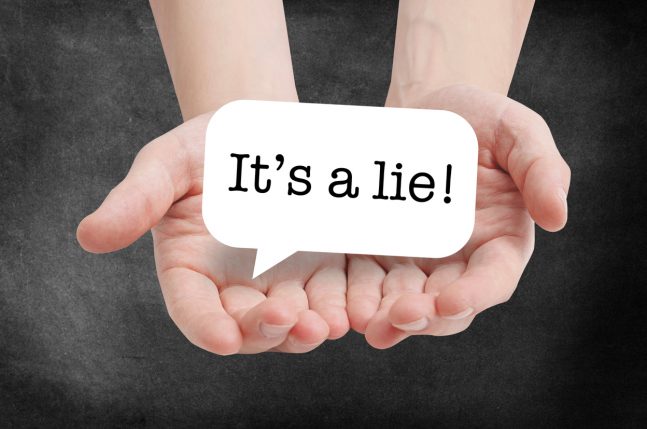
Defamation and malicious falsehood do overlap in the court of law. While defamation is more widely known and actioned, malicious falsehood is an alternative. Malicious falsehood (also known as injurious falsehood) differs from defamation (which injures personal reputations). Malicious falsehood is a lie about someone’s goods, business, or assets (e.g., X lies that trader Y’s company is insolvent; A claims B doesn’t own what he’s offering for sale, or S says T’s goods are illegally imported or rotten). In this article, we discuss both defamation and malicious falsehood, how they compare and how our dispute lawyers can help.
Overview:
The law of defamation
The law of defamation, whilst complex (at times, needlessly so), is generally known and understood.
In Australia, the States have codified defamation law into statutes. While these are not completely uniform, for the most part they align. They contain limitations on the right of action for defamation. In South Australia, the relevant legislation is the Defamation Act, 2005. Some of the limitations imposed by the Act are as follows:
Defamation time limit
As per the defamation time limit, the defamed person only has a year from the publication of the defamation in which to sue. A court can extend that year by 2 years, and 2 years only, if it is convinced that it wasn’t reasonable to have sued within the first year. Time limits like this apply to most legal actions.
After 3 years from the publication date, that’s it. No claim can be made. (Bad luck if you find out someone said or wrote something 37 months ago that’s made your life a living hell.)
Parties
Any company larger than one with 10 employees or more cannot sue for defamation. The dead can’t sue, or be sued.
Defences
There are a number of substantive and technical defamation defences.
Damages for defamation
There are limits on the defamation damages that a court can award.
Malicious falsehood as an alternative to defamation
As mentioned above, defamation and malicious falsehood are similar in nature, which means malicious falsehood may make a good alternative to defamation where action for defamation is not possible.
The law of malicious falsehood
Where a malicious act or false statements have harmed your reputation, there may be an alternative legal remedy to defamation: the old law of malicious falsehood. So what are some of the criteria of an action for malicious falsehood?
Way back in 1892 an English Court stated “that an action will lie for written or oral falsehoods, not actionable per se nor even defamatory, where they are maliciously published, where they are calculated in the ordinary course of things to produce, and where they do produce, actual damage, is established law. Such an action is not one of libel or of slander, but an action … for damage wilfully and intentionally done without just occasion or excuse…”
The High Court considered a case for suing on falsehoods in Palmer-Bruyn & Parker v Parsons (2001) and said (in varying degrees), that to succeed, a plaintiff had to prove:
- That the defendant published matter that was false about;
- That the falsity concerned the plaintiff or its property;
- That such falsity was calculated to induce others not to deal with the plaintiff or was otherwise likely to damage the plaintiff;
- That the publication was actuated by malice;
- That the publication had the results complained of;
- That those results included actual damage to the plaintiff; and
- That such damage was either the result which the person publishing the false matter intended; or the natural and probable result of such publication.
So, unlike defamation, the plaintiff needs to show the statement was false. And unlike defamation, the plaintiff must prove intent and malice, causation and actual damage.
It is thus easy to see why such claims are hard to prove and hence rare. But in a recent NSW Supreme Court case, Capilano Honey Ltd v Dowling (2021), the plaintiff succeeded.
The defendant published statements online critical of the Capilano Honey product, calling it “toxic and poisonous honey.” The Court held that the plaintiff had proved that the statements were false (the honey was not harmful to health); the defendant intended to hurt Capilano Honey, thus showing malice, and the noticeable decline in sales arose from the falsehoods. The company was thus awarded $25,000 but the company’s CEO also got $150,000 for additional personal defamations published by the defendant (who perhaps foolishly, represented himself in Court). When you add costs, the blogger will likely be up for $1/4m.
How do actions for defamation and malicious falsehood compare?
Actual Economic Damage
There is some overlap between an action for defamation and malicious falsehood – essentially, malicious or injurious falsehood relates to proprietary and commercial interests rather than personal reputation, although it can extend to damage to professional reputation. Actual economic damage has been the hallmark of the action, but the precise elements of it are still not fully formed and settled.
Intent to Harm
Unlike with defamation, the plaintiff has to prove that the falsehood is a falsehood, and that the false statements were made with intent to harm. Those elements usually make it a harder case to prove than defamation. But if defamation, for one of the reasons identified above, is not available, then this alternative remedy should be considered.
Defamation and malicious falsehood lawyers
For further information on the difference between defamation and malicious falsehood, please contact our defamation lawyers on 8362 6400 or email Peter Jakobsen.
Please feel free to discuss both types of action if you have been on the receiving end of unfair, adverse comments on your personal or business life. We are here to help you determine if malicious falsehood or defamation is required. Join our mailing list to receive updates and advice on current issues.







